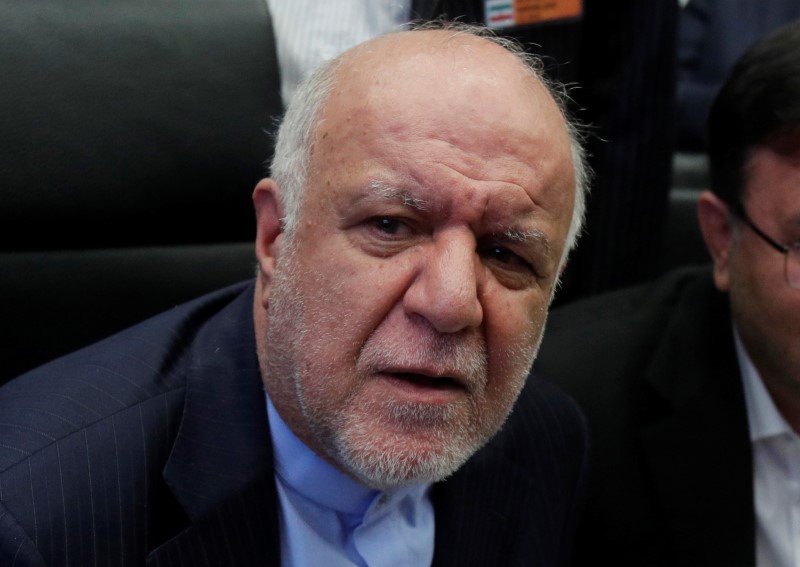LONDON (Reuters) - Iran's oil minister said that OPEC's oil output agreement did not specify a production increase and that a figure of 800,000 barrels per day (bpd) was an interpretation by some members of the group.
The Organization of the Petroleum Exporting Countries and other top crude producers, meeting in Vienna, agreed on Friday to raise output from July, but the agreement failed to announce a clear target for the output increase, leaving traders guessing how much more OPEC will actually pump.
"Despite what some (members) say about OPEC's production rise of around 800,000 barrels (per day), there is no figure in the statement," Bijan Zanganeh was quoted as saying by Iran's oil ministry news agency SHANA.
"Iran's suggestion was to first balance oil in the market, secure members' 100 percent compliance to the agreement, and then decide on a production increase in next meeting if needed," Zanganeh said.
He said that Iran's suggestion was approved in OPEC's last summit, and that "if a country has a different interpretation of this agreement, Iran will officially raise it to the OPEC."
Zanganeh said some countries want to send "positive signals to the market or to the United States", but that is not related to OPEC's decision.
The United States, China and India had urged oil producers to release more supply to prevent an oil deficit that could undermine global economic growth.
Iran, OPEC's third-largest producer, had demanded OPEC reject calls from U.S. President Donald Trump for an increase in oil supply, arguing that he had contributed to a recent rise in prices by imposing sanctions on Iran and fellow member Venezuela.
Market watchers expect Iran's oil output to drop by a third by the end of 2018. That means the country has little to gain from a deal to raise OPEC output, unlike arch-rival Saudi Arabia.
